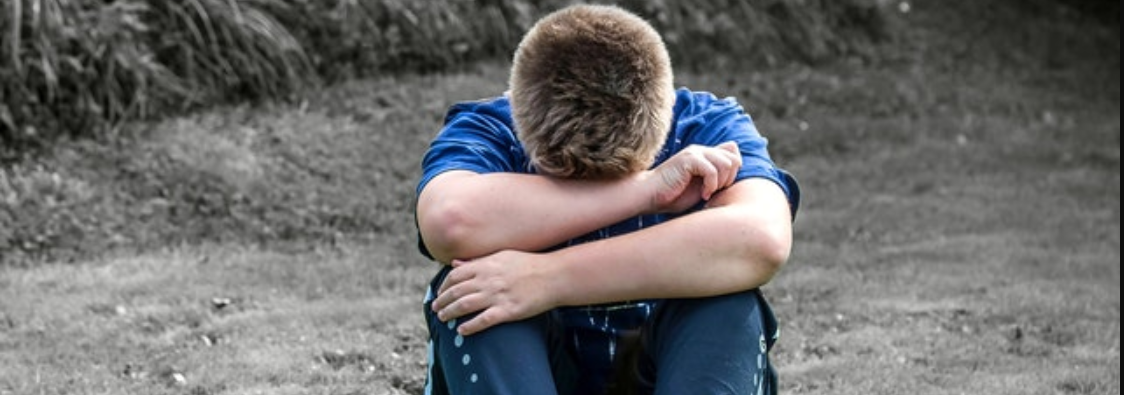Zero Tolerance Policy for Schools in Michigan
A significant change to Michigan’s Zero Tolerance Policy in schools goes into effect. A child’s future may hang in the balance when a school disciplines a student.

Children have Due Process Rights, and they need someone to protect their future.
For years, Michigan schools have been restrained by “zero tolerance” policies, orders from the government to expel any students involved in certain activities, including the possession of “dangerous weapons.” For years, Michigan restricted the discretion with which schools could handle their affairs. A new law, signed by the governor in December, changes that. Beginning this August, Michigan schools are no longer bound by the heavily restrictive “zero-tolerance” policies of the past and now have the authority to judge each student’s behavior individually. With added discretion replacing the zero-tolerance policy for schools, the proclivities of the school administrators will determine how these matters are handled.
The Old Way
Until the passage of this new law, immediate expulsion was required if a student brought a dangerous weapon to school, committed arson, assaulted a volunteer or member of the school’s staff, or engaged in any criminal sexual conduct. There was little recourse against the policy for students who were found responsible for any of the allegations above. School administrators’ hands were tied, and they didn’t have the power to use their judgment on a case-by-case basis.
The New Law
According to the new Zero Tolerance Policy for Schools legislation, much more control is in the hands of the schools. Before expelling or suspending a student, the school must evaluate their circumstances based on seven factors:
- The student’s age.
- The student’s disciplinary history.
- Any disability from which the student suffers.
- The seriousness of the student’s behavior.
- Whether or not the activity in question presented a risk to anyone’s safety.
- Whether or not restorative practices have been used.
- Whether some action less than expulsion or suspension would correct the behavior.

What The New Zero Tolerance Policy for Schools Law Means For Your Child
This policy change is good news for those students facing disciplinary action from their schools. It is, however, wise to bring legal counsel to assist in these matters. Because the law has changed recently, it’s essential to have a first-rate attorney with you to explain to the school administrators two key points. First, they are now allowed to look at the bigger picture and consider the totality of the child’s circumstances when deciding the best way to handle their case. Second, once the school understands its discretion, you need someone to help convince them why some punishment less than expulsion will achieve all the school’s objectives and prevent future behavioral problems.
In today’s increasingly competitive marketplace, you need to protect your child from any unnecessary blemishes on their record. An expulsion or suspension can wreak havoc on a child’s future, and studies show that expulsions and suspensions tend to lead young people down the wrong road. The “prison to pipeline” phenomenon is one of the main reasons this new law has been enacted.
Navigating the Mistakes of Good Kids in Complex Times
In an era where the lines between safety and freedom, caution and fear, are increasingly blurred, our schools have become focal points of intense scrutiny and regulation. Amidst this landscape, LEWIS & DICKSTEIN, P.L.L.C., understands that juveniles—their lives ahead of them, brimming with potential—sometimes find themselves ensnared in situations that are contrary to their intentions and character. A pressing issue we often encounter involves young individuals who bring items to school that could be considered dangerous weapons. While laws and school policies rightly try to protect students and staff, they also cast a wide net, one that can ensnare good kids who make impulsive decisions without intending harm or contemplating criminal action.
The Nature of Youth and Mistakes
Youth is a stage of life characterized by growth, learning, and, inevitably, mistakes. These mistakes are often impulsive, driven by a lack of experience rather than malice. Adolescents and teenagers are at a developmental stage where their ability to assess risks, control impulses, and foresee the long-term consequences of their actions is not fully matured. This developmental truth does not excuse bringing potentially dangerous items to school but necessitates a compassionate and nuanced understanding of these actions.
The Context of Their Actions
When a juvenile brings something to school that is deemed a dangerous weapon, the context of their action is crucial. Often, these situations arise from misunderstandings, a desire for attention or approval, a lack of awareness of school policies, or even the intention to protect themselves from perceived threats. It is essential to discern the motivation behind their action to ensure that the response is appropriate and just.
The Importance of Intent Relative to Zero Tolerance Policies and Schools
Intent is a cornerstone of justice. In many cases involving juveniles, the intent to use the item as a weapon or to commit a crime is absent. These young individuals might not have understood the severity of their actions or the potential consequences. Recognizing this lack of intent is critical in determining the appropriate response. Education, counseling, and rehabilitation efforts can address the underlying issues without resorting to punitive measures that could irreversibly alter a young person’s future.

Michigan Criminal Defense Lawyers for Minors
At LEWIS & DICKSTEIN, P.L.L.C., we advocate for a system that recognizes the difference between a mistake and malice, especially when it comes to teenagers. Our approach emphasizes:
- A thorough investigation of the context and intent behind the juvenile’s action ensures that responses are fair and tailored to the individual situation.
- Advocacy for alternative resolutions that focus on education, growth, and rehabilitation over punitive measures that fail to address the underlying developmental needs of the juvenile.
- Supporting families through these challenging times, offering guidance and legal expertise to navigate the complexities of the juvenile justice system.
You and your child deserve an advocate who will educate the educators and fight to ensure your child receives fair results, even when faced with a Zero Tolerance Policy violation in School. To speak with an attorney who has experience dealing with Michigan schools and fighting against expulsions, call LEWIS & DICKSTEIN, P.L.L.C. for a free consultation. We will take the time to talk with you, answer your questions, and address all of your concerns. We will find a way to help!
Call us today at (248) 263-6800 for a free consultation or complete an online Request for Assistance Form. We will contact you promptly and find a way to help you.













